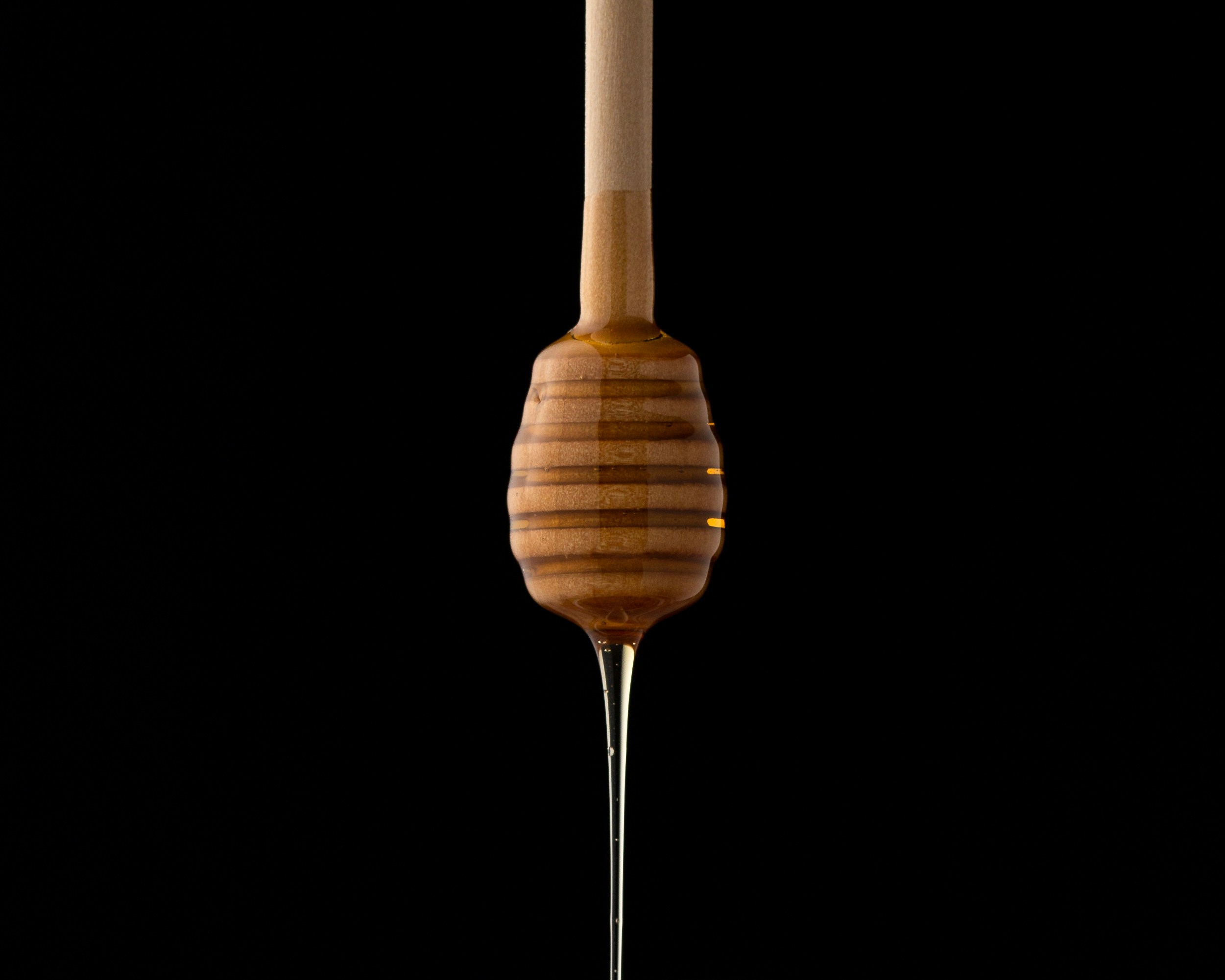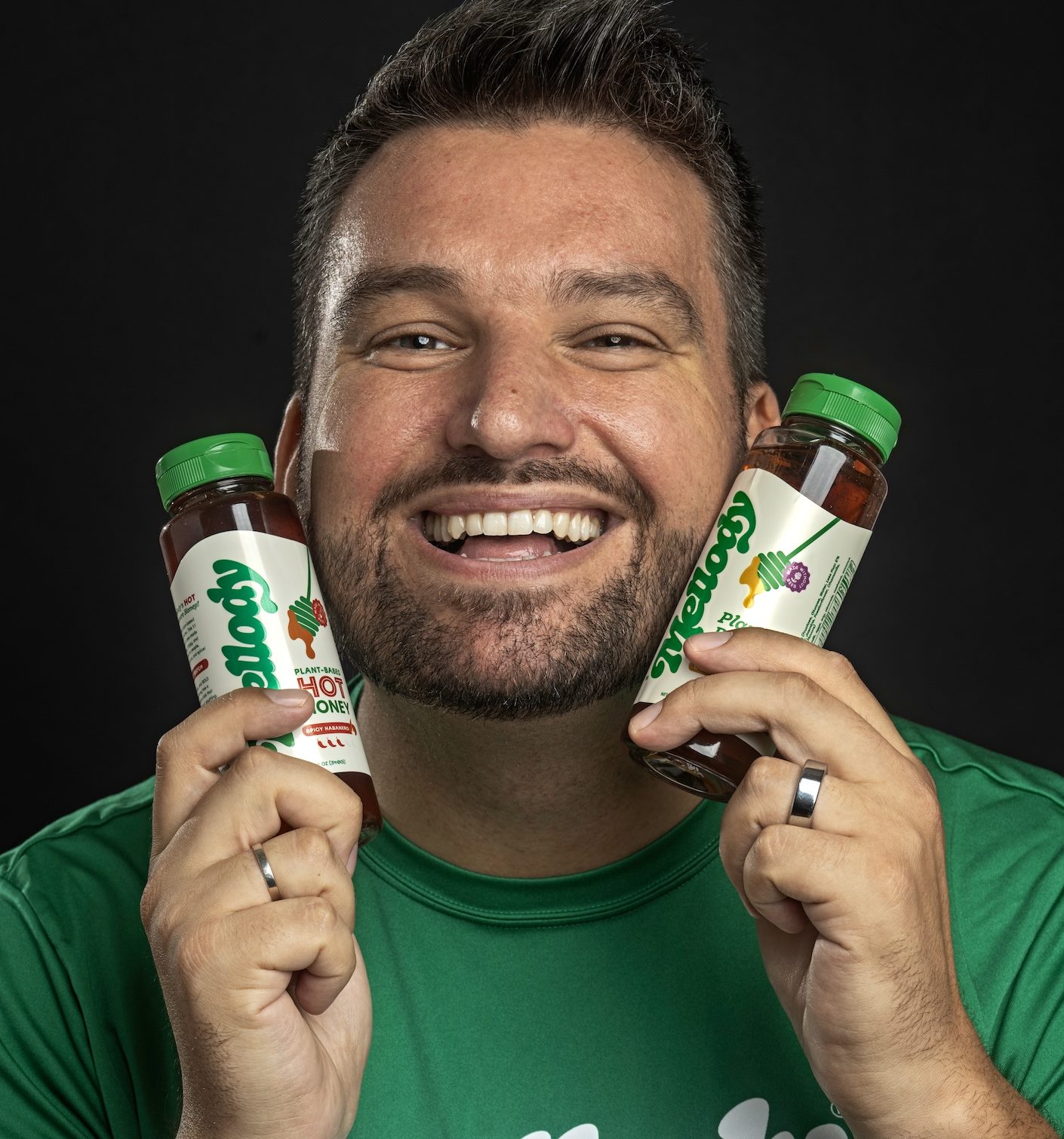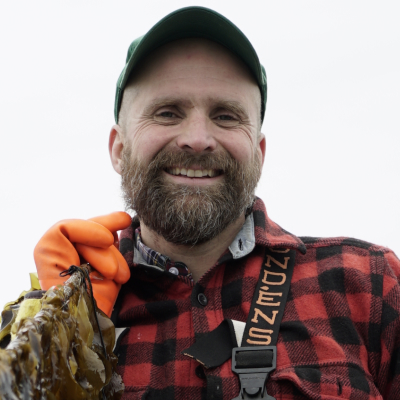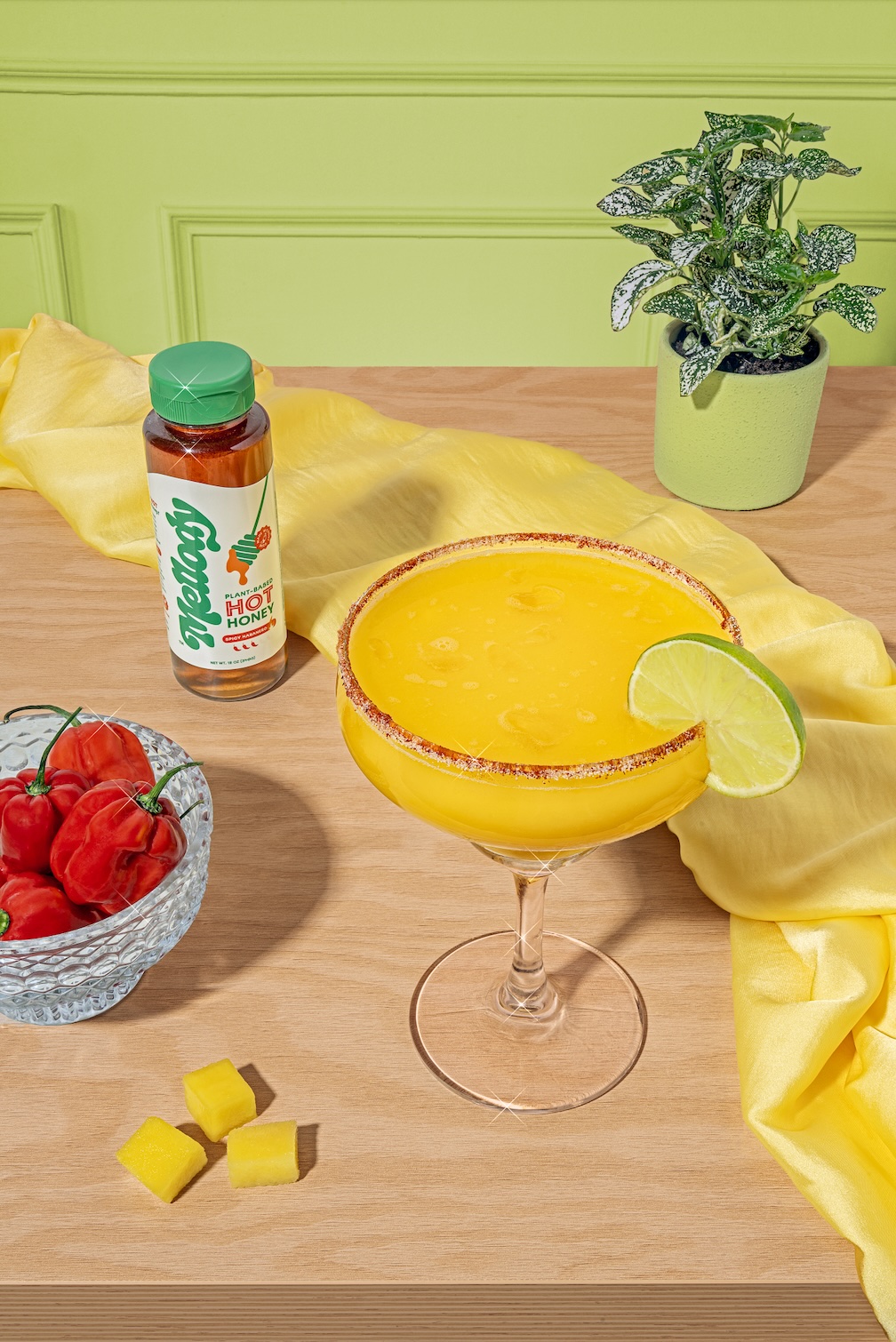
“Growing up in Serbia, I was always close to nature,” says Darko Mandich, “but my professional experience in the honey industry exposed me to the systemic issues threatening biodiversity.” Darko did a deep dive into the many issues that native bee species are up against: climate change, pesticide exposure and more. Throughout several years of research and development, his team at MeliBio came up with a bee-free honey formula with the exact molecular composition of traditional honey. Using precision fermentation, they’ve matched the taste, texture and nutritional content so well that several companies including Aldi and Better Foodie began using MeliBio honey under a private label. There is even a limited edition product with NYC’s three-Michelin-star restaurant Eleven Madison Park. MeliBio also launched its own honey label called Mellody, which currently features two flavors: Golden Clover and Spicy Habanero.
When did you first become passionate about pollinators, and what led you to co-founding MeliBio?
My journey toward MeliBio began with a deep concern for biodiversity, especially when I realized the detrimental effects of traditional honey production on native bee species. Growing up in Serbia, I was always close to nature, but my professional experience in the honey industry exposed me to the systemic issues threatening biodiversity. That led me to explore a sustainable solution for honey production. The vision of building a world where humans and bees thrive was the driving force behind co-founding MeliBio.
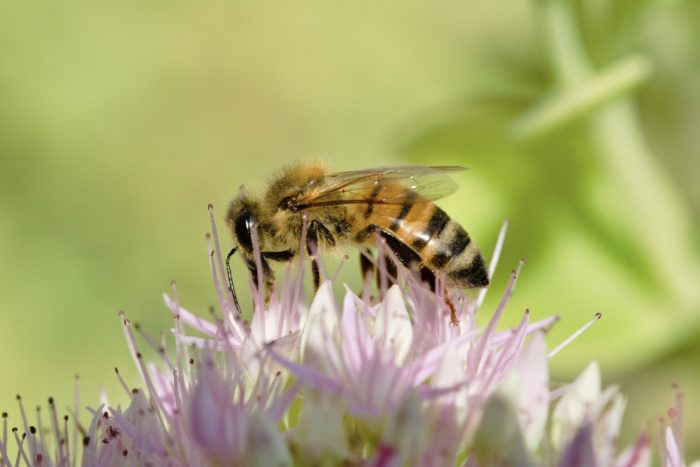
How is traditional honey production killing native bee populations? What else are bees up against right now?
Traditional honey production often relies on commercial beekeeping practices that favor honeybees, which outcompete native bee species for food. These practices can disrupt local ecosystems, leading to the decline of native pollinators critical for the health of our environment. Additionally, bees face numerous threats, including habitat loss, pesticide exposure, climate change, and diseases like colony collapse disorder.
Is it true that honey is also one of the top three fraudulent products shipped globally?
Yes, honey is widely reported to be among the most adulterated food products in the world. Fraudulent honey often involves the dilution or replacement of bee-made honey with cheaper sweeteners like rice syrup. Most honey purchased in stores and restaurants is not the product people think it is.
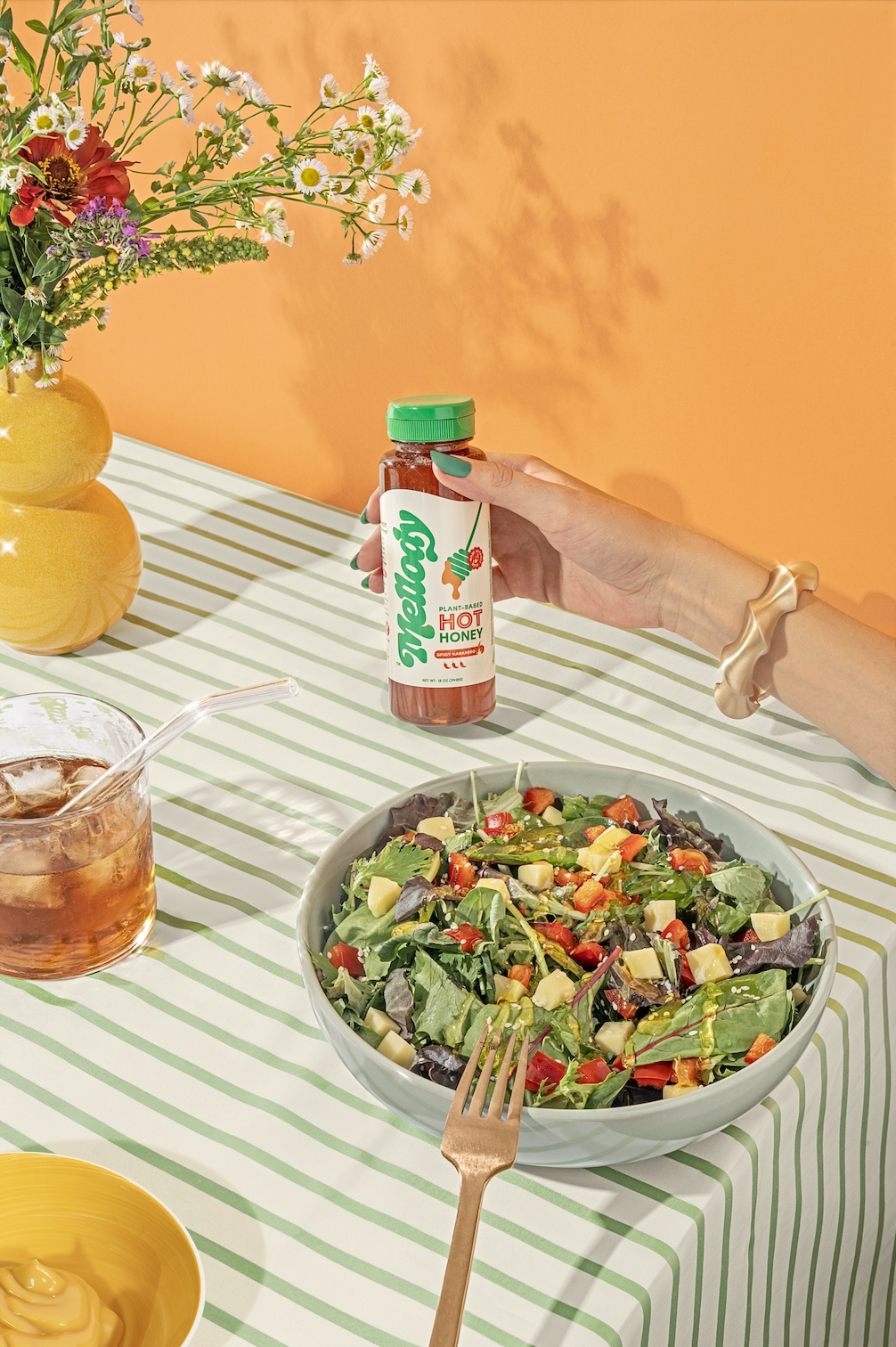
How is your honey made without bees, and what’s in it?
MeliBio’s honey is made using plant-based ingredients and precision fermentation, a process that allows us to replicate the exact molecular composition of honey without the need for bees. We focus on creating a product that is indistinguishable from bee-produced honey in terms of taste, texture, and nutritional properties, while offering a sustainable and eco-friendly alternative.
How long did it take to come up with this formula?
The journey to perfecting our bee-free honey formula took several years of research and development. It involved a multidisciplinary approach, combining expertise in food science and culinary arts to recreate the unique properties of honey in an environment that does not require honeybees.
Which companies are currently using your bee-free honey under a private label?
Several forward-thinking companies across the food industry have embraced MeliBio’s bee-free honey under private labels. Some of them include large global players such as Aldi, as well as niche brands such as Better Foodie. We are also proud of a limited edition private label with Eleven Madison Park, a 3 Michelin Star Restaurant in NYC.
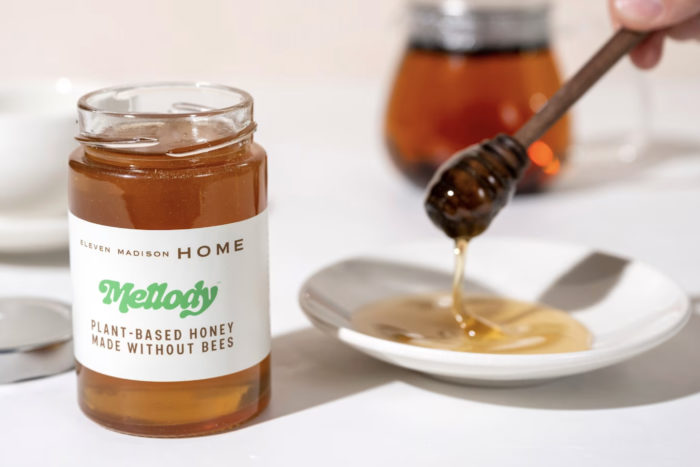
Why is Mellody produced in a facility that also uses ingredients like milk, eggs, soy, almonds, cashews, and coconut?
Mellody is produced in a shared facility that handles various ingredients, including milk, eggs, soy, and nuts. While Mellody itself is completely plant-based and free from these allergens, the shared space allows for greater efficiency in scaling production and meeting demand. We adhere to strict protocols to minimize cross-contamination and ensure the highest quality standards for our customers.
What has been the general response to Mellody from restaurants and food companies adding it to their menus and products?
The response has been overwhelmingly positive. Restaurants and food companies are excited to offer a honey alternative that meets the growing demand for sustainable, plant-based products without sacrificing taste or functionality. Chefs have been particularly enthusiastic about the versatility of Mellody in various culinary applications, from pastries to savory dishes.
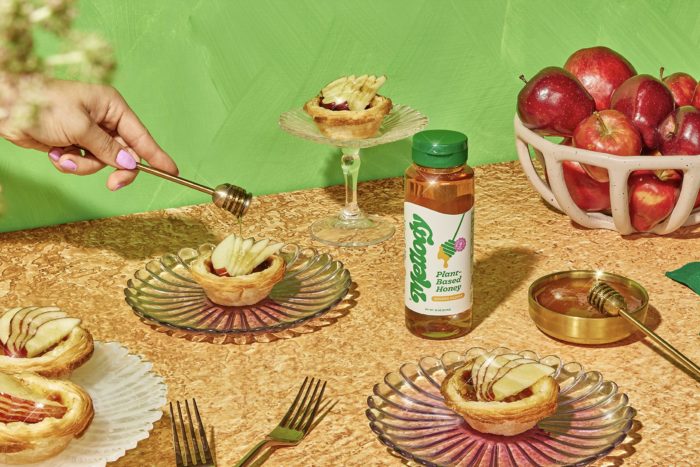
What’s your favorite way to enjoy Mellody?
My favorite way is to drizzle our Mellody Spicy Habanero over a Neapolitan pizza.
Is there anything new that you’re excited about and would like to share with readers?
We’re working on some exciting innovations at MeliBio, expanding our product line and enhancing the experience for our customers. Keep an eye out for new collaborations with restaurants and food companies as we continue to grow our presence. We’re also exploring ways to bring bee-free honey to even more markets, furthering our mission to protect pollinators and create a sustainable food system.

